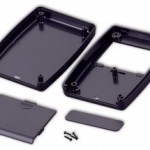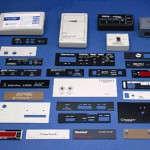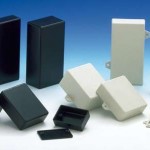 Although many electrical enclosures are made out of different types of metal, which have various beneficial properties, they don’t always offer the functionality that is required for specific uses. In many cases, plastic enclosures provide much better protection when applied in certain conditions and scenarios. That is why plastic has become a major player on the electronics enclosure market.
Although many electrical enclosures are made out of different types of metal, which have various beneficial properties, they don’t always offer the functionality that is required for specific uses. In many cases, plastic enclosures provide much better protection when applied in certain conditions and scenarios. That is why plastic has become a major player on the electronics enclosure market.
Particularly in case of smaller enclosures, those intended for use in outdoor environments and the ones which are meant to have surface-level buttons incorporated in them, using plastic in the manufacturing process can prove a lot more favorable than metal. Since plastic has a number of beneficial properties, which are not inherent to a number of the metal varieties, that makes it the preferred material for making enclosures with a wide range of applications.
Here are some of the properties and benefits of plastic, which make it a preferred enclosure material.
Benefits of Plastic
- It is non-magnetic
In some cases, an electronic enclosure made out of a magnetic material can cause damage to the equipment that it houses or the one that is placed around it. Plastic enclosures eliminate the chances of magnetic interferences.
- It is waterproof
Sometimes, electrical enclosures have to be placed in wet environments, like in the vicinity of ponds, lakes, or in some cases even underwater. In some factories, where these are used, there are also very humid environs, like for instance in factories which have outdoor operations and require adequate protection from snow and rain or in plants where there are water treatments incorporated in the processes. For these cases, plastic is a much better choice than metal as it is waterproof and it is not prone to rusting either.
- It is insulating
Being a naturally insulating material and easy to enhance with additional insulation options, plastic is capable of offering good elemental protection and keeping the electronic components it houses at a constant temperature.
- It is inexpensive
Metal boxes cost way more than plastic enclosures, since the material the former are made out of is costlier. Plastic is one of the most cost-effective and economical materials that can be used to produce electronic enclosures.
- It is flexible
Plastic is a lot less rigid than many types of metal. Thus, enclosures made from plastic can absorb vibrations; protect the insides from impact and even save more space than metal enclosures. This would also allow a factory to fit plastic boxes in places where metal ones could not fit.
- It is light
Plastic is a lot lighter than most types of metal and this can be beneficial when constructing enclosures which have to be lifted frequently or held in the hand. Especially for small enclosures and handheld ones plastic is definitely the more favorable material to use.
Plastic enclosures can be produced from a range of different plastic materials, which include ABS (acrylonitrile butadiene styrene), polyester, polycarbonate and a lot of other varieties. Various production methods can be used as well, but the most common ones are the molding processes. The plastic molding processes are very versatile, which allows plastic enclosures to be molded with complex parameters and geometries. This in turn can be very beneficial for special applications which require a very precise fit of the enclosures. Metal enclosures cannot offer this advantage, thus plastic electronic enclosures are a more viable alternative in the cases of small and complex enclosures.






